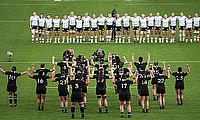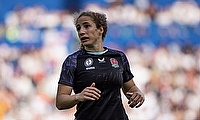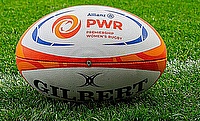Flashing mouthguards introduced for Women’s Rugby World Cup 2025

Smart mouthguards will debut at Women’s Rugby World Cup 2025 to detect head impacts.
©Photo by Johan Rynners - World Rugby/World Rugby via Getty Images
Mouthguards that light up to indicate potentially dangerous head impacts will be used at the Women’s Rugby World Cup 2025.
The new technology, developed to improve player safety, will see gumshields flash red when a collision registers an acceleration above a set limit. Once the mouthguard signals, the referee will stop play, and the player will be removed for a head injury assessment.
The initiative is part of World Rugby’s plan to roll out the system across all top-tier rugby competitions.
World Rugby Chief Medical Officer Éanna Falvey confirmed that every player in the tournament, which begins on August 22, will wear the mouthguards, apart from two players who have braces.
He noted that in the men’s game, around 85 percent of players already use similar “smart mouthguards,” though they are not mandatory.
The mouthguards monitor both movement and rotation of the head during contact. If the measurements exceed a pre-set safety threshold, the device flashes to indicate possible concussion risk.
World Rugby data shows that while concussion rates in women’s rugby are similar to the men’s game, high-acceleration head impacts are less common among female players.
The “instrumented mouthguard” was first tested at a women’s international tournament in 2023 before being introduced globally the following year.
One high-profile example of its use came when Scotland hooker George Turner was removed from a Six Nations match against France after his mouthguard detected a concerning head impact.
World Rugby’s science and medical manager, Lindsay Starling, said the aim is to use the data to benefit players rather than simply gather statistics.
She explained that the extensive dataset collected over the past year will now be applied to develop better safety measures.
Starling also noted that the technology could help identify foul play, though she cautioned that not all dangerous incidents will necessarily trigger a reading.









